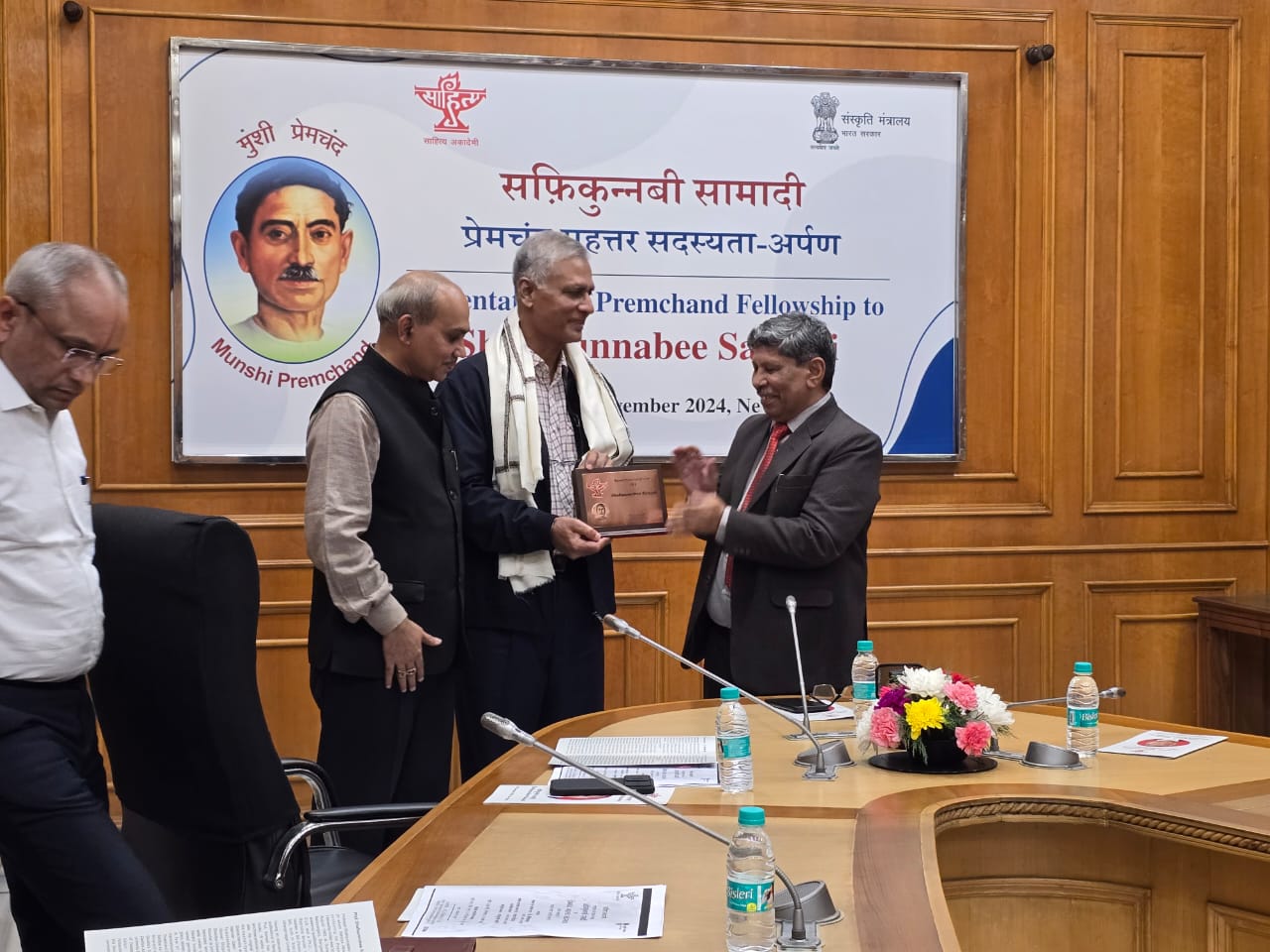Sahitya Akademi organised presentation of Premchand Fellowship in the evening of November 19, 2024, at its Conference Hall in New Delhi. This Fellowship is given to scholars doing research on Indian literature or to creative writers from the countries of the SAARC region other than India.
This year’s Premchand Fellowship was conferred on Prof. Shafiqunnabee Samadi, an eminent writer from Bangladesh. Dr. K. Sreenivasarao, Secretary, Sahitya Akademi, while welcoming the guests of the programme and the presented literary lovers, he informed that Prof. Samadi is the fourth Bangladesh writer who received this Fellowship, he also talked about Prof. Samadi’s literary journey and his contribution to the world of literature.
Dr Madhav Kaushik, President, Sahitya Akademi, felicitated Prof. Samadi with the Premchand Fellowship, which followed the reading of citation on Prof. Shafiqunnabee Samadi by Dr. K. Sreenivasarao.
Dr Madhav Kaushik, President, Sahitya Akademi, in his presidential address, thanked Prof Samadi for helping and making Indian literature international. He talked about the idea of the World Citizen and the role of literature and writers in making them World Citizens, and in his opinion Prof. Samadi is the best World Citizen. He further said that the concept of world citizen has been established by the writers themselves. If there were no writers, world citizenship could not go beyond cities. Concluding his Presidential address, he hoped that Prof. Samadi should keep working as a meaningful pool between the two countries i.e. India and Bangladesh.
Shafiqunnabee Samadi in his acceptance speech expressed his gratitude to Sahitya Akademi for bestowing the fellowship on him. He narrated the stories of his time studying comparative literature in Bangla and Hindi, and his intention to work on Munshi Premchand, to whom he was first introduced through Bangla. He expressed his intention to connect the people of Bangladesh and India and expressed the need to introduce Indian languages like Tamil, Malayalam, Telugu, Punjabi and Harayanavi to the Bangladeshi public. He spoke of literary translation as a practice of translating culture, and language as a bridge between people. He ended his acceptance speech expressing a belief in the next generation to carry on his work of translation and connection.

